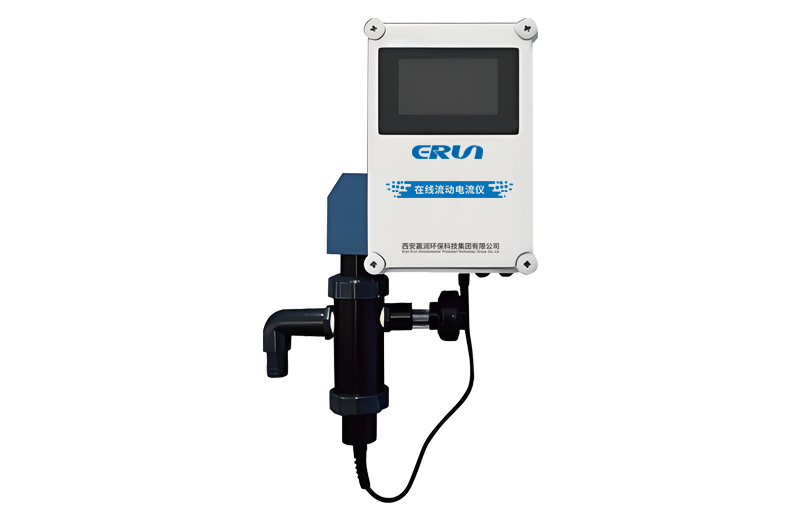An electrokinetic potential analyzer is a key instrument for measuring the Zeta potential of colloidal particles. It is widely used in water treatment, pharmaceuticals, chemicals, and materials science to optimize process stability and efficiency.
If you've ever wondered how to ensure the best performance of coagulants in drinking water treatment or how to maintain the stability of nanoparticles in pharmaceutical processes, the electrokinetic potential analyzer might be the answer. Don't worry—this article will explain this high-tech instrument in simple terms, including real case studies, national standards, and even recommended brands. Let's get started!

An electrokinetic potential analyzer is a professional device used to measure the Zeta potential of particles in colloidal dispersion systems. Zeta potential represents the strength of the surface charge characteristics of particles, directly affecting the stability of colloids. For example, in water treatment processes, the Zeta potential value can indicate whether the flocculation effect is ideal.
According to the national standard "GB/T 32671-2016 Method for Measurement of Colloidal Zeta Potential," the measurement results of electrokinetic potential analyzers must meet strict repeatability and accuracy requirements. This standard ensures data consistency across different laboratories, providing a reliable basis for industrial applications.
The application range of electrokinetic potential analyzers is extensive, covering almost all industries involving colloidal science. Here is a detailed analysis of several major fields:
1. Water Treatment Industry
In water treatment, electrokinetic potential analyzers are used to optimize coagulant dosage and ensure turbidity removal efficiency. For example, a large water plant reduced coagulant usage by 15% by using an electrokinetic potential analyzer, while the effluent turbidity stabilized below 0.1 NTU, far exceeding the requirement of 1 NTU specified in the national "Standards for Drinking Water Quality" (GB 5749-2022).
2. Pharmaceuticals and Biotechnology
In the pharmaceutical industry, electrokinetic potential analyzers help maintain the structural stability of protein drugs or nano preparations. Studies show that when the Zeta potential value is between ±30 mV, the colloidal system is generally highly stable (reference: *Journal of Pharmaceutical Sciences*, 2020). This avoids aggregation or failure issues during drug storage.
3. Chemical and Materials Science
From coatings to ceramic production, electrokinetic potential analyzers are used to control the stability of suspensions and prevent sedimentation or clumping. For example, a ceramic company reduced product defect rates from 8% to below 2% by monitoring Zeta potential, significantly improving production efficiency.
To help you better understand the value of electrokinetic potential analyzers, here is a case study based on a real scenario:
Case Background:
A coastal city wastewater treatment plant faced unstable flocculation effects, especially during the rainy season when inlet water quality fluctuated greatly, causing effluent indicators to frequently exceed standards.
Solution:
The plant introduced an electrokinetic potential analyzer to monitor Zeta potential in real time and dynamically adjust coagulant dosage based on the data.
Results:
- Coagulant usage reduced by 20%, saving approximately 500,000 CNY annually.
- Effluent turbidity stabilized below 0.5 NTU, meeting the Grade A standard of the "Pollutant Discharge Standard for Urban Wastewater Treatment Plants" (GB 18918-2002).
This case demonstrates the dual advantages of electrokinetic potential analyzers in improving process control precision and economic efficiency.

When selecting an electrokinetic potential analyzer, consider measurement accuracy, compliance, and after-sales service. Here are some key factors:
Factor | Description |
Measurement Accuracy | The error range should be less than 卤1 mV to ensure data reliability. |
Compliance with Standards | The equipment must meet the requirements of GB/T 32671-2016. |
Brand and After-Sales Service | Choose a well-known brand to ensure technical support and maintenance. |
Based on the above criteria, we recommend the ERUN-SZ-SCD Flow Current Meter. This instrument uses advanced signal processing technology, offering fast measurement speed and stable results, making it particularly suitable for real-time monitoring in the water treatment industry.
As the "eyes" of colloidal science, electrokinetic potential analyzers help various industries precisely control process stability. From water treatment to pharmaceuticals, from cost savings to compliance, their application value is irreplaceable. If you are looking for a reliable tool to improve production efficiency, start by understanding Zeta potential!